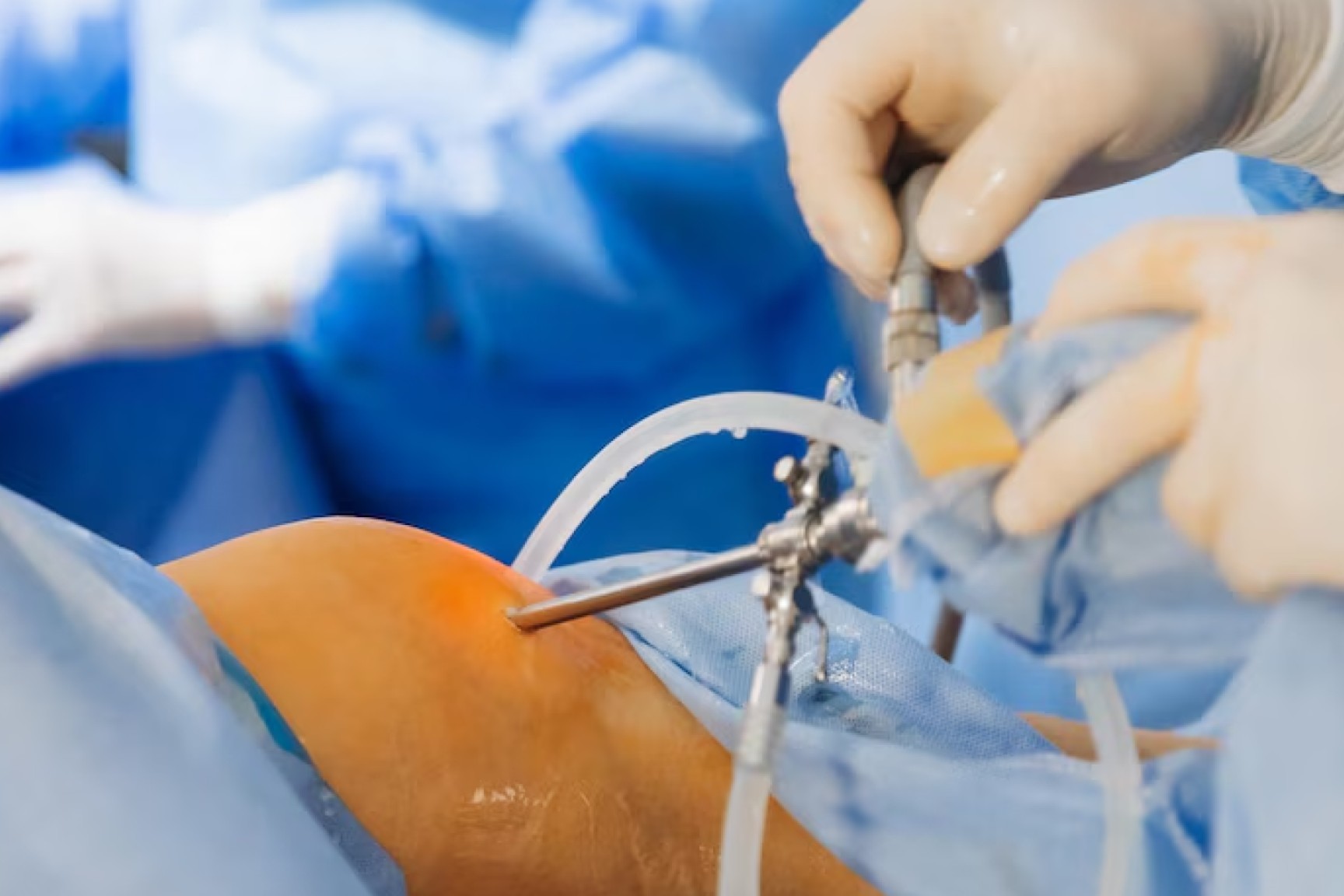Home > Knee Replacement Surgery
f you’re suffering from chronic knee pain or arthritis and considering knee replacement surgery, you deserve the care of one of Delhi’s most trusted experts – Dr. Ashish Jain.
The procedure by which a damaged knee joint is replaced with an artificial material is termed as total knee replacement. The longest bone of the human body, femur meets the lower leg (tibia) at the knee joint. During surgery, the damaged cartilage and bone are removed from the knee joint. The thigh and calf bones are joined with metal implants at their ends. A plastic material is inserted in the middle of the metal implant which allows smooth movement of the knee joint. In between the metal implants, a plastic gaper is introduced which aids in free movement of the joints.
Causes of knee replacement surgery
The main purpose of knee replacement surgery is to relieve intolerable that cannot be reduced by any other treatment.

Joint is the meeting point of two bones held together by muscles, ligaments, and tendons. Joints are further covered by a layer of tissue called cartilage which absorbs shock and protects the joint. Knee is a movable joint at the lower part of the body which allows movement of the legs.
The quadriceps muscles which are situated at the upper end of the thighs helps in straightening the legs and the hamstring muscles, situated behind the thighs helps in bending the legs at the knee joint.
The ligaments also aid in movement around the knee. Some of them protect the knee joint, whereas others limit the movement of the shin bone (tibia).
It is very difficult to predict which patients will require knee replacement surgery and which patients will be treated merely by medicines. Even though sometimes, this surgery remains the only option left for treating this acute pain, doctors age, past medical history, kind of treatment he is undertaking, obesity and other nutritional cannot do this surgery due to a lot of complications and side effects. Many a times, the patient’s deficiency and diseases makes it difficult to perform the operation. If severe knee pain characterized by chills , uneasiness in stretching and bending legs, difficulty in walking, running, lifting weights and other activities makes life difficult and the pain does not subside by taking pain relievers and analgesics, this surgery remains the only solution.
The main risk associated with total knee replacement includes blood clots that can occur at the site of surgery and can travel to the lungs (pulmonary embolism). Pulmonary embolism can cause pain in the chest while breathing, light headedness or low oxygen in the body, palpitations, dry cough etc. They can rarely cause death too. Other risks include urinary tract infection, nausea and vomiting (usually related to pain killers), chronic knee pain and stiffness, bleeding into the knee joint, nerve damage, blood vessel injury, and sometimes even re-surgery has to be done due to infection in the knee. In addition to these, the risks of anesthesia include potential heart, lung, kidney, and liver damage.
Since the surgery is a complicated one, it involves hospital stay for quite some time after the operation. In most cases the patient is subjected to general anesthesia, so that the operation takes place when the patient is sleeping.
The surgery occurs in the following ways:
The main purpose of knee replacement surgery is to relieve intolerable that cannot be reduced by any other treatment.
Care at the hospital
Care at the home
It must be kept in mind that a full recovery after the knee replacement surgery may take several months. So, patients should avoid strenuous activities like running, climbing, bending around the knee, lifting heavy weights which can damage the replaced knee. One important thing is since the patients will find it difficult to walk for the first few days after surgery, they should take help of others to avoid falling down, as a heavy fall can completely damage the replaced knee. They also use walkers, canes or crutches to avoid fall.
WhatsApp us